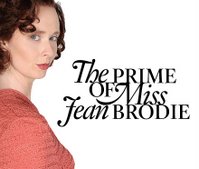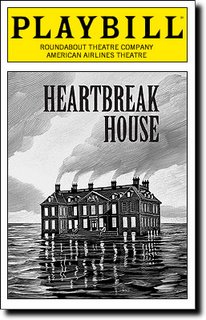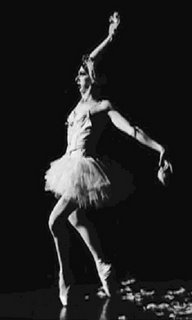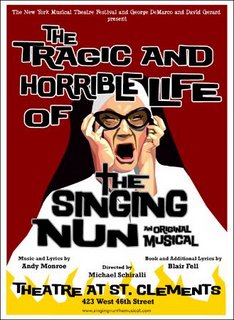 "Shipwreck" Part 2 of "Coast of Utopia" at the Vivian Beaumont Theatre at Lincoln Center, December 30, 2006
"Shipwreck" Part 2 of "Coast of Utopia" at the Vivian Beaumont Theatre at Lincoln Center, December 30, 2006I probably should have waited until I'd seen Part 1 of this massive endeavor by Tom Stoppard, but I came across a very good and affordable ticket and couldn't turn it down. (Spoiler alert)
This play picks up the story of Alexander Herzen (Brian O'Byrne), his family and friends in Russia and Paris. I won't attempt a plot summary. LCT has been thoughtful enough to do that for the audience as an insert to the playbill, including a reading list for those so inclined. The plot is as epic, intricate and heavily charactered as anything by Tolstoy. Check out the website for the show here:
Coast of Utopia
Individually, performances were solid with a few standouts. This is to be expected with a cast that includes Mr. O'Byrne, Billy Crudup, Jennifer Ehle, Martha Plimpton, Ethan Hawke, Amy Irving and Richard Easton. Mr. O'Byrne and Ms. Ehle (as Natalie Herzen) do most of the heavy lifting in the show, carrying the time from 1846 in Russia to 1852 heading for London and back to 1846 Russia with stops along the way in Paris, Germany, and Nice.
Mr. O'Byrne brings his usual intensity to Alexander, struggling with the idealism of bringing Russia into the modern world while trying to balance it with raising his family and maintain those relationships. He did seem to have some minor line difficulty at a couple of points, but the sheer volume of words he's tasked with learning deserves commendation in and of itself. To then be able to perform both plays currently running (not to mention the third which begins a the end of January) is a feat of true talent. He sums himself up, "...half Russian, half German, in the end I'm Polish at heart...".
Ms. Ehle's Natalie is also struggling (seems to be a running theme for most Russian theatre characters). Her younger son Kolya (August Gladstone) was born deaf.
David Harbour is George Herwegh, a German poet who meets the Herzen's in Paris, moans and wails as he thinks a 19th century poet should. I found this weakness disguised in the emotions of an artist makes him a rather unlikeable character, yet Mr. Stoppard has written that two women are in love with him at the same time. Given his use of "tits" and "ass" in another scene, I was left unsure how to deal with such anachronisms.
Mr. Crudup's Belinsky, suffering from consumption, is fragile and weak. Weakness becomes another running fatal flaw for characters in this play.
But ultimately, all this weakness seems to be each character's excuse for passion and inaction. They write plays and pamphlets and books, but each looks to the other to actually start the revolution they all agree is due and forthcoming. Michael Bakunin (Mr. Hawke) does join a real revolution, albeit a small one in Saxony, and finds himself returned to Russia in shackles.
Everyone spends a lot of time talking, but the real action is going on around them.
Mr. Stoppard also points up some political parallels to the world today. When discussing that nine million newly enfranchised French voters returned a monarchist in Napoleon, Herzen observes, "In a free vote, the French public renounced freedom." The response (from Bakunin, I believe) "More poor people have the vote today than rich people who have the vote. How did it turn out that nothing would change?" Napoleon staged a coup within three years, naming himself emperor.
Bodies litter the stage by the end of the play, figuratively at least as Herzen heads for London.
Jack O'Brien has directed this massive cast with a fine eye and hand. He moves what little story there is along well. I liked the use of parallel tableaux opening Acts I and II, even though events to follow were very different. We also get a glimpse of Kolya's silent life as the adults around him fade to pantomime.
Supported by a terrific design team, sets by Bob Crowley and Scott Pask, costumes by Catherine Zuber and lighting by Kenneth Posner. I've always been impressed by the quality of sets in the Beaumont Theatre. It's one of the few major houses with thrust stage, once fashionable, but not anymore. Messrs. Crowley and Pask have done some excellent work, from Herzen's first appearance floating in a chair above a billowing silk sea that drains into a trap door, to the torn and tattered edge of the scrim, communicating the age of a society, the wear of a revolution and evoking a distant countryside treeline, to the Place de la Concorde in Paris with some clever perspective work on a shallow stage.
I think this is one I'll have to see again, but only after I've seen Part 1 first.

















